B.Des.(Product Design)
The B.Des. (Product Design) at MIT-WPU is a progressive programme that equips students with the skills to create innovative, functional, and sustainable products. Emphasising the power of design to address social, cultural, and environmental challenges, the programme fosters a deep understanding of human behaviour and ecological responsibility. Students delve into human factors, material science, and manufacturing processes, developing aesthetic sensibilities and practical design skills. A key focus is on user-centric design, where students undertake extensive projects and user studies to create products that resonate with diverse user groups. This approach ensures our students design with empathy and functionality in mind. The curriculum is infused with cutting-edge technology and sustainable practices, covering areas like Artificial Intelligence, bio-design, and digital fabrication.
These elements prepare students for the evolving complexities in product design and environmental stewardship. Collaborative and practice-based learning forms the core of the programme, with projects often involving external partners. These projects challenge students to innovate in response to real-world problems, spanning new technology solutions to consumer needs. Students of this programme are well-equipped to enter various design-related fields, bringing innovative, ethical, and impactful solutions to the global market. They emerge as visionary designers ready to contribute positively to society and the environment.
Last Date To Apply : 28 July 2024
B.Des.(Product Design)
| Scholarship for AY 2024-25 | MIT-WPU CET CBT Score | UCEED Rank |
| Dr. Vishwanath Karad Scholarship (100%) | 93 & Above | Upto 800 All India Rank |
| MIT-WPU Scholarship I (50%) | 91 & Above | 801-2000 All India Rank |
| MIT-WPU Scholarship II (25%) | 90 & Above | 2001 to 2500 All India Rank |
Note: Student will be entitled to only one of the scholarships based on MIT-WPU CET 2024 CBT (Computer Based Test) Score or UCEED 2024.
*Terms & Conditions apply:All Scholarships are awarded on a First Come First Serve basis All Scholarships are awarded as fee adjustments.
To continue the scholarship for the entire duration of the programme, a minimum level of the academic score has to be maintained at an 8.5 CGPA across all semesters attendance is to be maintained at a minimum of 80 percent there should be no disciplinary action against the student.
Minimum 50% aggregate score in 10+2/Class 12th in any stream with compulsory English as a subject or in equivalent examination (at least 45% marks, in case of Reserved Class category candidate belonging to Maharashtra State only)
AND Valid score in MIT-WPU CET 2024 / UCEED 2024 / NIFT 2024 / NATA 2024 / NID 2024
Admissions will be provided purely based on merit of MIT-WPU CET 2024 / UCEED 2024 / NIFT 2024 / NATA 2024 / NID 2024 score, Personal Interaction (PI) and Portfolio Review as per the schedule.
- Innovative Design and Technology Integration: Equips students with cutting-edge skills in product design, incorporating advanced technologies like AI, and digital fabrication
- Practical Application of Theory: Emphasises the application of theoretical knowledge to real-world design challenges, honing students; ability to create functional and aesthetic products
- Professional Exposure and Networking: Provides valuable industry exposure and networking opportunities, connecting students with professionals and organisations in the product design sector
- Multidisciplinary Learning: Offers a comprehensive learning experience by blending principles of design, human factors, material science, and sustainability, broadening students' design perspective
- Collaborative and Immersive Learning Environment: Facilitates a dynamic learning atmosphere with hands-on projects and collaborations with external partners, fostering practical skills and creativity
- Extracurricular Engagement: Encourages participation in student-led clubs and activities, fostering personal growth, leadership, and collaborative skills in design-related fields
- Global Sustainability and Innovation Focus: Inspires students to create sustainable and responsible design solutions, addressing global environmental and societal challenges
- Strong Industry-Academia Links: Offers practical experience and career opportunities through internships and placements with leading organisations in the product design industry
- Industry and Alumni Mentorship and Guidance: Provides mentorship from an extensive network of industry experts and alumni, offering students support and advice in their academic and professional pursuits
- Entrepreneurship Support and Incubation: Promotes entrepreneurial skills in product design, with access to resources like funding, mentorship, and connections through the Pune Technology Business Incubator (TBI) for innovative startups
- Apply foundational knowledge of user-centred design principles and methodologies to create intuitive and engaging user experiences
- Empathetic Design Thinking: Analyse user needs and behaviours through research methods to inform the design process
- Strategic Research & Theorisation: Create effective information architectures and user interface designs that optimise usability and navigation
- Creative Idea Generation: Develop interactive prototypes and conduct usability testing to evaluate and refine the user experience
- Clear Communication & Presentation Skills: Collaborate with multidisciplinary teams to integrate business goals, technical requirements, and user-centred design principles
- Multidisciplinary Design Integration: Apply visual design principles and techniques to create visually appealing and cohesive user interfaces
- Accessibility Standards for Inclusivity: Implement accessibility standards and guidelines to ensure inclusive and usable experiences for users with disabilities
- Effective Design Communication: Communicate design concepts, research findings, and usability insights effectively to stakeholders and team members
- Critical Evaluation & Iterative Design: Critically evaluate and reflect upon design decisions and iterate based on user feedback and industry best practices
- Professionalism, Ethics & Continuous Learning: Demonstrate professionalism, ethical conduct, and a commitment to continuous learning and professional growth in the field of User Experience Design
100% placement assistance


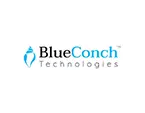
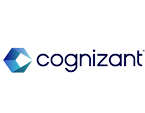
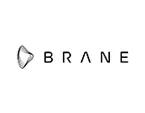
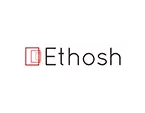


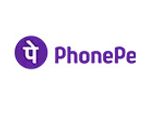


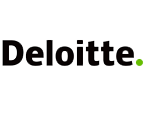





 admissions@mitwpu.edu.in
admissions@mitwpu.edu.in 

